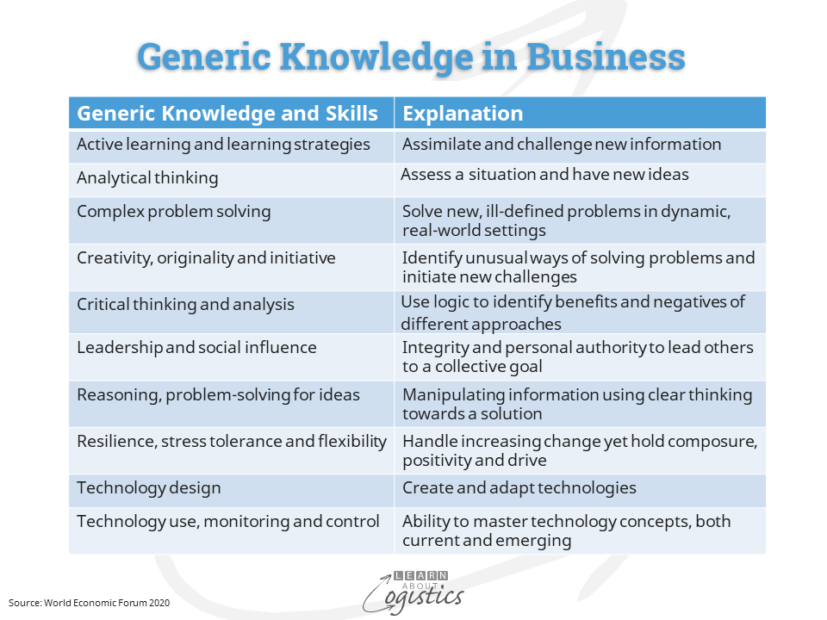New in supply chains
Ideas and concepts in business, like fashions, have their moment in the sun, then fade as something new appears. But is the ‘new’ just the old with a new name?
It can be that concepts once again become popular due to circumstances that are favourable at the time – the stars are aligned. Currently we are being reminded about the need for visibility and responsiveness, but as David Cobby notes in this site’s Comments, visibility and responsiveness was performed in some apparel companies about 25 years ago. Why did it not continue? Because the lure of low cost labour resulted in companies moving their operations to low cost countries (LCC), exchanging visibility and responsiveness for supply chain complexity.
New in accounting
A second example of ‘old is new again’ is contained in a report from the World Economic Forum (WEF) concerning “Human Capital as an Asset”. The surprise on reading the report was that the 2nd year project in my undergraduate degree concerned Human Asset Accounting (as it was then called). The timing of this new report could be due to changing relationships in organisations caused by the current pandemic and the relative importance placed by organisations on technologies and people.
In the introduction to the WEF report, it states “The framework will enable a company to monitor and assess the return on its investments in its employees – in the same way as it measures returns on financial and intellectual capital”. This was the same reasoning provided by earlier researchers, based on the business concept that ‘people add value, while technology reduces costs’.
Generic knowledge in business
The WEF has also provided a report concerning the future of jobs and the skills required. It is interesting to note that the generic skills required of students and employees are in the humanities, but is this the price signal concerning areas to study? In Australia the cost of humanities subjects at university now cost at least twice the fee set for STEM (science, technology, engineering and mathematics) subjects.
In the five years to 2025, the WEF considers “85m jobs will be lost to automation and 97m new jobs will be performed at the interface of humans, machines and algorithms”. Due to possible confusion about terminology, what are called jobs may actually be tasks. Even so, their conclusion might be called ‘ambitious’, but if the timeline for change happens to be longer than anticipated, the trend is believable.
The table below identifies (in alphabetical order) the range of generic knowledge that the WEF report recommends in addition to analytical and technical expertise within a business environment:

As with the other examples discussed, the need for employees in business to have generic knowledge is not new. Years ago, undergraduate business and commerce degree programs contained core subjects that included: business psychology, business sociology, programming (Cobal and Fortran in those days), problem solving, project management and value analysis. Only after these subjects were completed could the discipline subjects be studied and generic learning applied.
A difference of opinion
Governments however, are promoting the concept that STEM (science, technology, engineering and mathematics) knowledge should be acquired by students and the current workforce, as they are critical to their country’s future economy. This ignores the alternative approach of STEAM (science, technology, engineering, arts and mathematics) that considers a broader base of knowledge is required by future employees who will be required to think more and do less.
Based on the STEAM concept and experiences in the current pandemic, there is likely to be a significant increase in remote working (working from home or at a decentralised location near to home). According to the WEF, this requires a higher level of self-management, resilience and initiative, which changes the intellectual capability required of employees.
Also, a changing environment will require organisations and their supply chains to adapt and develop:
- A mindset about the need for adaptation and change
- An awareness of sustainability, resilience and business continuity
- An on-going awareness of organisation reputation within a climate change environment
- A creative problem-solving approach
The examples given in this blogpost of ‘old is new again’ is not a criticism of the practice – for supply chain professionals, implement whatever approach has the best chance of success. However, be wary of assuming that a ‘new’ approach is actually new and not an older practice with a new name.
You may have a different view concerning the generic knowledge and skills required, but the table above provides a starting point for discussion and resolution in your workplace or learning institution.

